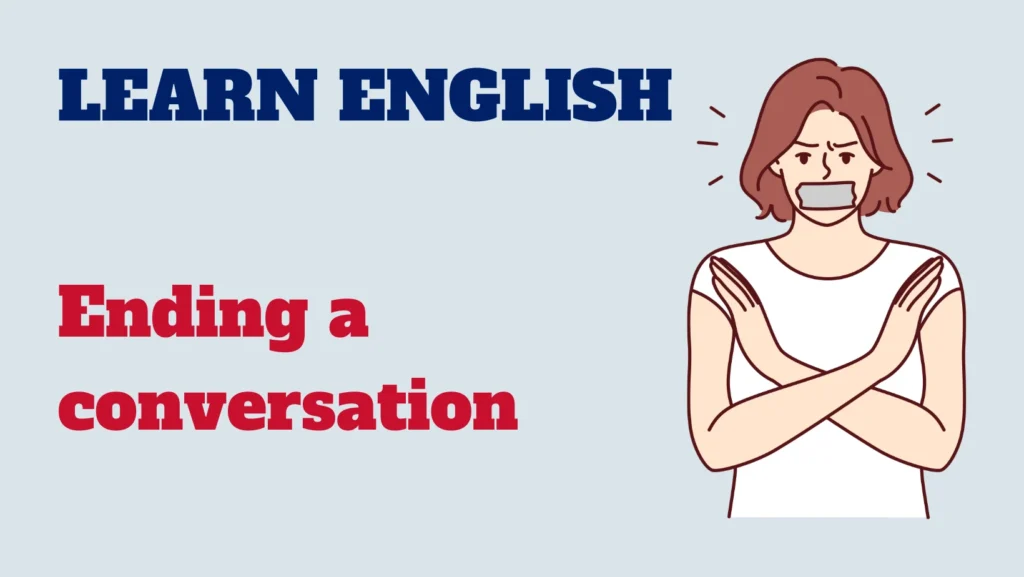Learning a new language is exciting, but it’s equally important to understand expressions and nuances that can be delicate. In this lesson, we’ll explore some English expressions that can be used subtly to end a conversation or politely navigate social situations.

Whether you’re in a social setting, at work, or in an informal context, these expressions will help you gracefully manage sometimes tricky interactions.
“I should get going.”
This expression indicates that you’ve enjoyed the conversation, but you also have other things to attend to. It’s a polite way to conclude the discussion while showing appreciation for the exchange.
Example:
“I really enjoyed talking with you, but I should get going.”
“We should definitely catch up sometime.”
Use this phrase to convey openness to continue the conversation in the future, indicating that now might not be the ideal moment. It leaves the door open for a future interaction while closing the discussion for the time being.
Example:
“I have to leave now, but we should definitely catch up sometime.“
“I wouldn’t want to keep you any longer.”
This expression shows consideration for the other person and suggests that you don’t want to monopolize their time. It’s a courteous way to imply that it might be time to part ways.
Example:
“I really enjoyed our chat, but I wouldn’t want to keep you any longer.“
“There’s something urgent I need to attend to.”
When you have a valid excuse, such as an obligation or an emergency, this is a polite way to conclude the conversation without hurting the other person’s feelings.
Example:
“There’s something urgent I need to attend to, sorry.”
“I’ll have to let you go for now, but it was truly interesting.”
This expression allows you to express interest in the conversation while indicating that you have to leave. It’s a positive way to wrap up the discussion.
Example:
“I’ll have to let you go for now, but it was truly interesting to have a talk with you.”
“I feel like I’m losing my voice; I need to take it easy.”
If you’ve been talking a lot and want to justify your departure in a lighthearted way, this humorous expression can be used to lighten the mood.
Example:
“I feel like I’m losing my voice; I need to take it easy.”
“I look forward to learning more the next time we meet.”
This is a way to express interest in the person while subtly implying that the conversation is coming to an end. It shows that you’re open to continuing the discussion later.
Example:
“I look forward to learning more the next time we meet, thank you!”
Navigating conversations in English can sometimes be a challenge, especially when it comes to politely ending a discussion. The expressions mentioned above are ways for English learners to navigate these situations gracefully. Always remember the importance of consideration and politeness, even when seeking to politely end a conversation.



